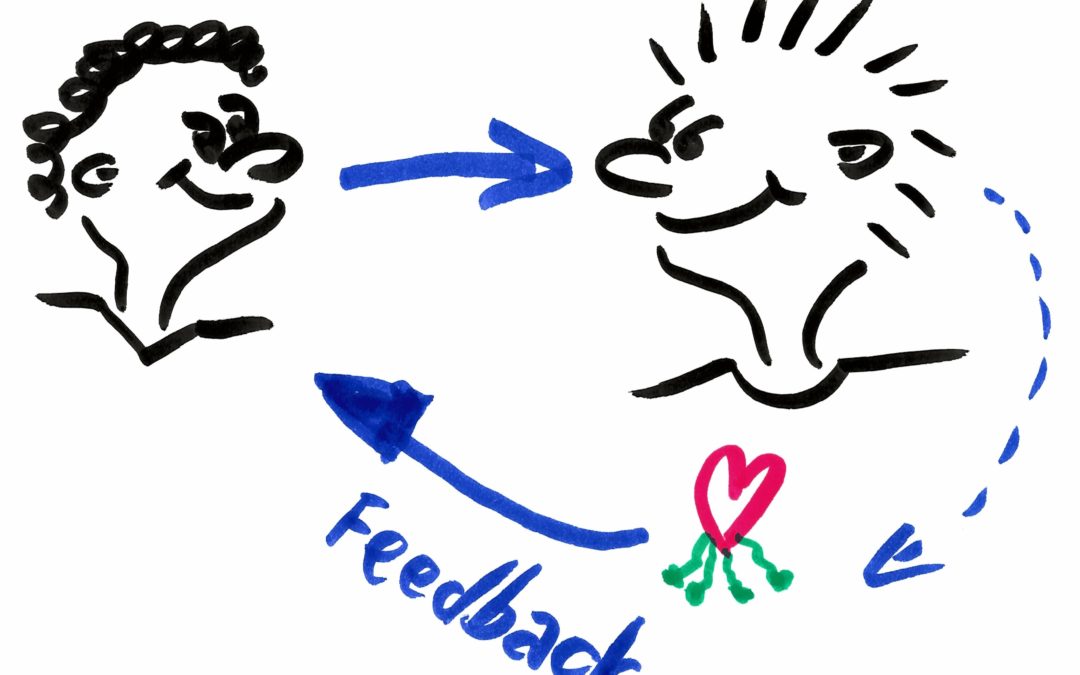
Recently I came across the following headline.
Coaching tips : Learn the fine art of feedback here
I wanted to know what was on offer.
First, the article offers 5 golden rules for bad feedback. It's quite entertaining, but I stop reading when I read the rule "use emotions". I think: if feedback contains feelings, it becomes "lousy"? I read on and relaxation follows. There is talk of no longer saying "you annoy me", because I-messages are now known and people now say "I'm annoyed with you", which doesn't make things any better. I'm right there with you... Curiosity is growing in me as to what "great" feedback will be and whether more clarity will be created with the feelings, how they could be used in feedback.
The following are the 5 golden rules for successful steering. I had to read this several times and then looked for the section on valuable feedback. Had I missed it? No. There is nothing like that. Is steering the same as feedback in the article title? I dread to read on. Do it anyway, the curiosity is too great.
What I read then reminds me of the many good tips on perfect wolf behaviour and power over. Nevertheless, I like that I read something about feelings and it actually says that feelings do not come from outside, that the boss does not have feelings about the employee. The conclusion from this makes me feel faint again, as I would like to see more prudence and cooperation, more clarity and precision: one should manage one's feelings (=not show them, i.e. suppress them).
Well, there is something great about the article! It moves me to blog. How wonderful - feedback is my daily bread as a NVC trainer, adult educator and coach. I have often experienced that people do not want feedback at all - out of self-protection to maintain emotional security. With NVC as an attitude and a means of expression, it lets my counterpart know how I have received and experienced my counterpart. This feedback is not a judgement on my counterpart, it is my most intimate reaction to my counterpart. It allows my counterpart to see me.
And it could look like this:
Observation: What did my counterpart say or do ...
Feeling: ... what triggers the feelings of ... in me, ...
Need: ... because is important to me.
If my need has been fulfilled by what my counterpart has said or done, I may still thank him for it and celebrate it.
If my need has not been met by what my counterpart has said or done, I may make one more request.
Action request: Are you ready to do / say ... next time?
This feedback becomes connecting when I may inquire what my feedback just triggers in the other person - I ask for feedback, as it were.
I wish that you will receive appreciative feedback and ask for it, help your counterpart to come out of judgements and find the courage to speak about yourself.
